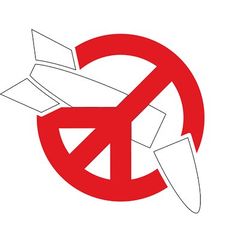Difference between revisions of "International Campaign to Abolish Nuclear Weapons"
m (Text replacement - "|twitter=" to "|twitter=https://twitter.com/") |
(Added: wikiquote, abbreviation.) |
||
| Line 7: | Line 7: | ||
|type=Non-profit international campaign | |type=Non-profit international campaign | ||
|website=http://www.icanw.org | |website=http://www.icanw.org | ||
| + | |wikiquote=http://en.wikiquote.org/wiki/International_Campaign_to_Abolish_Nuclear_Weapons | ||
| + | |abbreviation=ICAN | ||
}} | }} | ||
The '''International Campaign to Abolish Nuclear Weapons''' (ICAN) is a coalition of non-government organisations in one hundred countries advocating for a strong and effective [[nuclear weapon]] ban treaty. ICAN originated in [[Australia]] and was then launched internationally in [[Vienna]] in 2007. | The '''International Campaign to Abolish Nuclear Weapons''' (ICAN) is a coalition of non-government organisations in one hundred countries advocating for a strong and effective [[nuclear weapon]] ban treaty. ICAN originated in [[Australia]] and was then launched internationally in [[Vienna]] in 2007. | ||
Latest revision as of 12:32, 24 February 2018
 | |
| Abbreviation | ICAN |
| Headquarters | Geneva, Switzerland |
| Type | Non-profit international campaign |
The International Campaign to Abolish Nuclear Weapons (ICAN) is a coalition of non-government organisations in one hundred countries advocating for a strong and effective nuclear weapon ban treaty. ICAN originated in Australia and was then launched internationally in Vienna in 2007.
In October 2017, Nobel committee chairwoman Berit Reiss-Andersen announced that ICAN had been awarded the Nobel Peace Prize:
- "The organisation is receiving the award for its work to draw attention to the catastrophic humanitarian consequences of any use of nuclear weapons, and for its ground-breaking efforts to achieve a treaty-based prohibition on such weapons."
Beatrice Fihn, executive director of ICAN, told reporters:
- "It sends a message to all nuclear-armed states and all states that continue to rely on nuclear weapons for security that it is unacceptable behaviour. We can't threaten to indiscriminately slaughter hundreds of thousands of civilians in the name of security. That's not how you build security. We are trying to send very strong signals to all states with nuclear arms, nuclear-armed states — North Korea, US, Russia, China, France, UK, Israel, all of them, India, Pakistan — it is unacceptable to threaten to kill civilians."[1]
Contents
Nuclear Weapon Ban Treaty
On 7 July 2017, the Treaty on the Prohibition of Nuclear Weapons was endorsed by 122 countries at United Nations headquarters in New York after months of talks in the face of strong opposition from nuclear-armed states and their allies.[2]
The 10-page Nuclear Weapon Ban Treaty will be open for any UN Member State to sign from 20 September 2017 during the annual UN General Assembly. While countries that possess nuclear weapons are not expected to sign up any time soon, supporters of the treaty believe it marks an important step towards a nuclear-free world by banning the weapons under international law.[3]
First step towards elimination
Beatrice Fihn at ICAN in Geneva said:
- “It’s a prohibition in line with other prohibitions on weapons of mass destruction. We banned biological weapons 45 years ago, we banned chemical weapons 25 years ago, and today we are banning nuclear weapons.” Within two years the treaty could have the 50-state ratifications that it needs to enter into international law, she said. Previous UN treaties have been effective even when key nations have failed to sign up to them. The US did not sign up to the landmines treaty, but has completely aligned its landmines policy to comply nonetheless. “These kinds of treaties have an impact that forces countries to change their behaviour. It is not going to happen fast, but it does affect them,” Fihn said. “We have seen on all other weapons that prohibition comes first, and then elimination. This is taking the first step towards elimination.”
Under the new treaty, signatory states must agree not to develop, test, manufacture or possess nuclear weapons, or threaten to use them, or allow any nuclear arms to be stationed on their territory.[4]
Employee on Wikispooks
| Employee | Job | Appointed |
|---|---|---|
| Beatrice Fihn | Executive Director | July 2014 |
Related Documents
| Title | Type | Publication date | Author(s) | Description |
|---|---|---|---|---|
| Document:Labour Built the Bomb | Article | 10 July 2017 | Bill Ramsay | The prompt for this short essay is not Labour's nuclear legacy: it is what took place in the UN General Assembly last Friday when the Nuclear Weapon Ban Treaty passed into international law. |
| Document:Speech to the European Parliament by Beatrice Fihn, Executive Director of ICAN | Speech | 7 February 2018 | Beatrice Fihn | "Are you going to support the new Trump Nuclear Doctrine? Join the thinking of Russia, North Korea? Cheer on a new nuclear arms race? Or are you going to support the work for the prohibition and the elimination of nuclear weapons? You cannot do both." |
References
- ↑ "Nobel Peace Prize awarded to International Campaign to Abolish Nuclear Weapons"
- ↑ "International Campaign to Abolish Nuclear Weapons (ICAN)"
- ↑ "Treaty adopted on 7th July 2017, United Nations Conference to Negotiate a Legally Binding Instrument to Prohibit Nuclear Weapons, Leading Towards their Total Elimination"
- ↑ "Treaty banning nuclear weapons approved at UN"